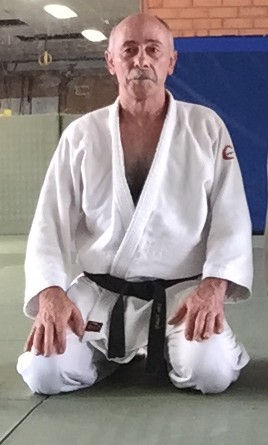Concussion: judoka must think long term and take action to protect each other
- jnunan23
- Aug 26
- 3 min read
Every Australian judoka has a responsibility to their friends and teammates to keep an eye out for the symptoms of concussion – and call out them out if they are obviously impaired.

It’s a challenging but very necessary expectation, Judo Australia’s Chief Medical Officer, Dr John Azoury explained.
Dr Azoury – well known as Dr John in the Australian judo community - has been gathering statistics on judo injuries since the 2000 Olympics in Sydney. He has conducted his own research in the field, and follows concussion science particularly closely.
While the understanding of the long-term implications of concussion has evolved in the years since 2000, the pressures on athletes have not – this is why it is critical for coaches, friends and family to step up, Dr John said.
“We all know players who’ve only admitted they’re feeling unwell after they’ve collected the medal they’ve been chasing, or fought every match they could. But this is exactly why their coach, or friends need to step in and say ‘stop’.”
Dr John speaks from personal as well as professional experience: he is a veteran judoka who trains with Beyond Grappling in Canberra, and has overseen many National Championships and major international tournaments as well as Judo ACT events.
It doesn’t matter whether someone is looking ill at weekly training, or in a gold medal fight in a Grand Prix – we have a responsibility to speak up, he said.
Formal assessment tools and a session with the medical staff are necessary and obligatory, but everyone around the judoka has a role to play, Dr John insisted. Coaches, training partners, friends and family will know when you aren’t at your best.
“It’s the people who know them best who are able to look out for signs of that person being not quite right, acting in pain or a bit wobbly or vague – a coach or a training partner with enough experience can tell from their judo alone that something is off. Friends and family will know if they are a bit snappy, unusually vague or just having more headaches than normal.”
Dr John stressed that not every concussion resulted from a hard knock or a fall the way most people thought it did, and not every concussion was immediately obvious. This means a judoka’s friends, coaches and family may suspect they are concussed before the athlete is willing to concede they need to sit out.
“It’s utterly vital,” Dr John says. “I see it as part of our moral responsibility as judoka – a function of friendship and respect and honour. If you see someone isn’t quite themselves, if their randori is a bit off, if they are obviously in pain or acting strangely, you must consider they could be concussed.”
Dr John drafted the Judo Australia Medical Manual which guides best practice approaches to injury at tournaments and in training. This includes tools to help in the assessment of possible concussions.
“I’d like coaches, in particular, to be using these assessment tools as the first suspicion of a concussion. The reality is, if a person fights on when they’ve had a brain shake, they are increasing their likelihood of not recovering from that brain shake as quickly.”
“So instead of compromising the athlete for one training session or event, you could be opening yourself up to months of headaches at training, months of not being quite as sharp as that athlete could be. And if they sustain another concussion, that is all exacerbated.”
Visible cues of concussion may include a loss of consciousness or responsiveness, an athlete needing to lie motionless on the ground or being slow to get up; balance problems – being unsteady on their feet; a dazed, blank or vacant look, and general confusion, losing grip on their tactical or situational awareness.
The Medical Manual sets forth Judo Australia’s rules for concussion:
· No further play for the duration of competition days
· Over 18 years – two days of rest after symptoms observed or self-reported
· Under 18 years – 14 days rest after symptoms observed or self-reported
· If the athlete is experiencing concussion-like symptoms for more than 10 days, then a consultation with a specialist/medical practitioner expert in concussion is recommended
· A medical clearance should be given before return to play
· If a doctor or neurologist hasn’t been consulted, the Medical Manual suggests return to play should be NO LESS than 28 days after the athlete is no longer experiencing symptoms.
The following are available online from Judo Australia: (click to download)


Comments